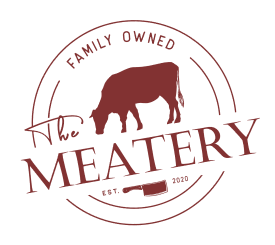History and Origin of American Wagyu
American Wagyu represents a fascinating culinary crossroads where Japanese tradition meets American innovation. The story begins in 1975 when the first four Japanese Wagyu bulls were imported to the United States, marking the genesis of what would become American Wagyu beef. These bulls—two Black Wagyu (Tanimura and Tajima) and two Red Wagyu (Judo and Rueshaw)—laid the foundation for America's Wagyu industry.
The initial importation was followed by additional Wagyu cattle arriving in the U.S. during the 1990s, just before Japan declared Wagyu cattle a national treasure and banned further exports.
American ranchers began crossbreeding these pure Wagyu animals with high-quality domestic cattle, primarily Angus. This strategic crossbreeding created what we now recognize as American Wagyu—a breed combining the exceptional marbling and flavor profile of Japanese Wagyu with the size and efficiency of American cattle.
Several pioneering ranches, including Snake River Farms in Idaho and Black Hawk Farms in Kentucky, played instrumental roles in developing the American Wagyu industry. These early adopters recognized the potential of these genetics and invested in breeding programs that transformed the premium beef market in the United States.
Today's American Wagyu cattle typically contain 50% or more Wagyu genetics, with some producers maintaining purebred herds. The American Wagyu Association, established in 1990, maintains the breed registry and promotes quality standards throughout the industry. This organization has been crucial in establishing legitimacy and consistency in a market commanding premium prices for exceptional products.
Sustainability and Ethical Practices
The production of American Wagyu increasingly embraces sustainable and ethical practices, setting new standards in premium beef. Unlike conventional beef production, American Wagyu is typically raised with greater attention to environmental impact and animal welfare, reflecting consumers' growing concerns about responsible food sourcing.
Many American Wagyu producers implement rotational grazing systems promoting soil health and carbon sequestration. This practice allows pastures to recover between grazing periods, preventing overgrazing while naturally fertilizing the soil.
Water conservation is another critical aspect of sustainable Wagyu farming. Ranchers will use precision irrigation and water recycling to minimize water usage, particularly in drought-prone regions where many American Wagyu operations are located.
From an ethical perspective, American Wagyu cattle enjoy superior living conditions compared to conventional beef cattle. Significant investments in each animal incentivize exceptional care, ensuring:
-
Extended lifespans (typically 26-30 months versus 18 months)
-
Lower-density environments with more space per animal
-
Reduced stress, enhancing both welfare and meat quality
-
Specialized nutrition tailored to health rather than rapid weight gain
Transparency in ranch operations builds trust with conscientious consumers. Many ranches invite consumer visits or provide detailed production practice information online (The Meatery has visited several farms in California to ensure we only source from the most ethical farms!)
Grading Systems for American Wagyu
Understanding grading systems is essential for consumers navigating premium beef categories. Unlike conventional beef, graded by USDA standards (Select, Choice, Prime), American Wagyu employs nuanced evaluation methods capturing its exceptional characteristics.
The American Wagyu Association (AWA) grading system categorizes cattle by genetic composition:
-
Fullblood: 100% Wagyu genetics, documented pedigree
-
Purebred: At least 93.75% Wagyu genetics
-
Percentage: Typically 50% Wagyu genetics or higher
American Wagyu beef is evaluated using the Beef Marbling Score (BMS) system (similarly to Japanese Wagyu) from 1-12. USDA Prime beef typically scores 4-5, while American Wagyu commonly achieves scores of 6-9, with extraordinary examples reaching 10-12.
Additional grading factors include:
-
Meat color and brightness
-
Fat color and quality
-
Firmness and texture of meat
-
Overall fat distribution quality
Proprietary grading systems from producers, such as Snake River Farms’ “Black Grade” and “Gold Grade,” provide consumers with clear quality indicators.
A premium steak at an affordable price
American Wagyu provides wagyu steak lovers with a remarkable culinary experience, while still being on the affordable side of Wagyu.. The extraordinary marbling creates tenderness, flavor complexity, and juiciness unmatched by conventional angus beef.
American Wagyu offers:
-
Exceptional tenderness: The intramuscular fat melts at low temperatures, resulting in a buttery, velvety texture.
-
Rich flavor: Distinct nutty and umami notes derived from higher monounsaturated fats and omega-3 fatty acids.
-
Nutritional advantages: Healthier fat profile, higher in oleic acid (found in olive oil), and beneficial omega-3 fatty acids.
-
Culinary versatility: Exceptional adaptability in dishes ranging from steaks and burgers to gourmet preparations like carpaccio, tacos, and ramen.
Consistency in delivering exceptional culinary experiences creates strong consumer loyalty, especially for special occasions.
American Wagyu vs. Angus: Which is Better?
Comparing American Wagyu and Angus isn't about superiority but understanding distinct characteristics and culinary applications:
-
Angus beef: Robust, beefy flavor, firmer texture ideal for grilling and traditional steakhouse preparations.
-
American Wagyu: Superior marbling, buttery texture, nuanced flavors suited for sophisticated culinary experiences.
Choice depends on desired flavor intensity, texture preference, culinary context, and occasion.
Top Tips before buying American Wagyu
Before buying American Wagyu Steak, there are some things to look out for to ensure you are getting the best quality possible:
-
Verify authenticity: Clear genetic composition (Fullblood, Purebred, Percentage) and marbling score.
-
Source selection: Consider direct purchases from producers, specialty butchers, or reputable online retailers (The Meatery checks all these boxes as your one stop shop for American Wagyu!)
-
Cuts we recommend: An American Wagyu Ribeye or New York Strip are always the safest cuts to cook when trying any type of Wagyu for the first time. There are plentiful tutorials and guides on the internet on how to cook them, ensuring you get the best dinner experience possible.
-
Proper storage and handling: Refrigerate and cook within 2-5 days or freeze properly in vacuum-sealed packaging
Is American Wagyu Worth the Money?
Whether American Wagyu justifies its premium price (typically $25-60 per pound) depends on personal preferences, occasions, and other financial considerations. Its extraordinary tenderness and flavor represent genuine, measurable differences from conventional beef. American Wagyu is the most affordable type of Wagyu at The Meatery, so be sure to browse our website to start planning your next exceptional dinner!
Conclusion
American Wagyu represents a unique blend of Japanese heritage and American innovation, delivering exceptional culinary value. By understanding its origin, sustainable practices, grading systems, and culinary appeal, consumers can confidently decide if American Wagyu fits their palate, values, and dining aspirations.
Whether for special celebrations, everyday culinary adventures, or exploring nuanced flavors, American Wagyu undoubtedly provides a distinct, memorable, and enriching gastronomic experience.
Explore premium American Wagyu selections at The Meatery and begin your culinary journey today.









